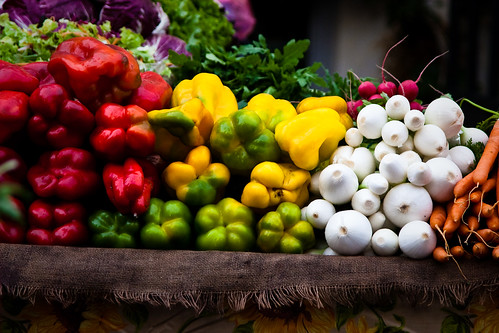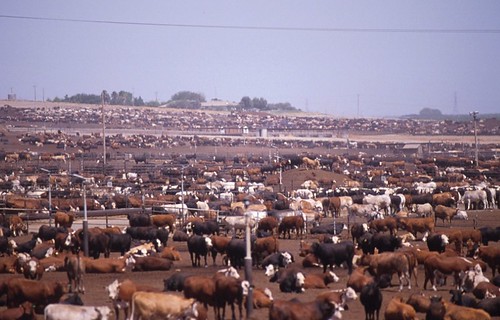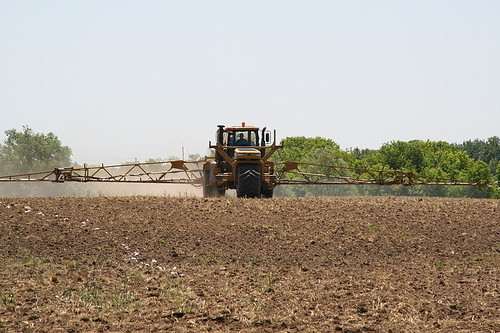by Jane Lee
June 5th is World Environment Day!
Tell us about one thing you would do to make our planet a better place. For inspiration, read below to find out what the UN is focusing on in 2013…In 1972, the UN organized the first World Environment Day with the purpose of encouraging individuals all over the world to take action on behalf of our environment. This year, the UN Environment Programme has chosen to spotlight the theme “Think.Eat.Save.”

A focus on food couldn’t be timelier. As global debates about climate change, population growth, biodiversity loss, and natural resource depletion intensify, it’s important to think about how the basic human act of eating affects all of these vital issues.

Photo credit: Lars P.
According to the UN Food and Agriculture Organization (FAO), one third of global food production is either wasted or lost. 30 percent of the world’s energy goes toward food production and distribution, but of that 30 percent, up to 40 percent is wasted when food is thrown away or goes uneaten. These are alarming numbers, especially given the fact that 925 million people across the world go hungry.
Wasted food isn’t the only problem. Inefficiencies in production and distribution methods cause even further losses of natural resources and energy. For instance, meat and dairy products are some of the most resource-intensive and environmentally harmful foods to produce. The meat industry requires vast quantities of water, land, feed, and labor while at the same time it is responsible for an estimated 18 to has much as 51 percent of the world’s greenhouse gas emissions. Crops grown in industrial-scale monocultures require large amounts of fossil fuel-based fertilizers, pesticides, and herbicides. And produce that is shipped from halfway around the world or processed foods that are double-wrapped in plastic packaging are just two examples of how energy and resources are expended even after a crop has been harvested.
 Photo credit: Socially Responsible Agricultural Project
Photo credit: Socially Responsible Agricultural Project Photo credit: eutrophication&hypoxia
Photo credit: eutrophication&hypoxia
But despite the fact that food waste and the environmental costs of food production continue to pose serious problems, the good news is that there are numerous ways for individuals and communities to make an impact for the better. People all over the world are working tirelessly to transform our food system into one that is sustainable and nourishing for everyone along the food chain. Whether through political activism, community organizing, research, education, or simply changing your own day-to-day habits, there are countless ways to make a difference. Here are just a few of the many ways you can reduce waste and your environmental footprint when you eat:
- Learn more about the global food supply chain. Check out these resources on Wiser.org!
- Buy only what you need. Come up with a list before heading to the market to save time and money as well as prevent unnecessary food waste.
- At meals, eat multiple servings of small portions instead loading your plate with food all at once.
- Composting is a great way give new purpose to food scraps and food waste. Find out if your local community has a composting program, or try making compost on your own!
- Buy food that is seasonal and locally produced. It’s fresher and took less energy to get to your kitchen.
- Choose foods lower down on the production chain. Cut down on meat and dairy as well as processed foods!
- Plant seeds. Whether you cultivate a small window box or your entire yard, it’s empowering and eye-opening to grow your own food!
To learn more about global food issues, check out the Permaculture Supporter and Sustainable Farmers and Gardeners groups on Wiser.org!
Source: http://blog.wiser.org/celebrating-world-environment-day-with-a-focus-on-food/